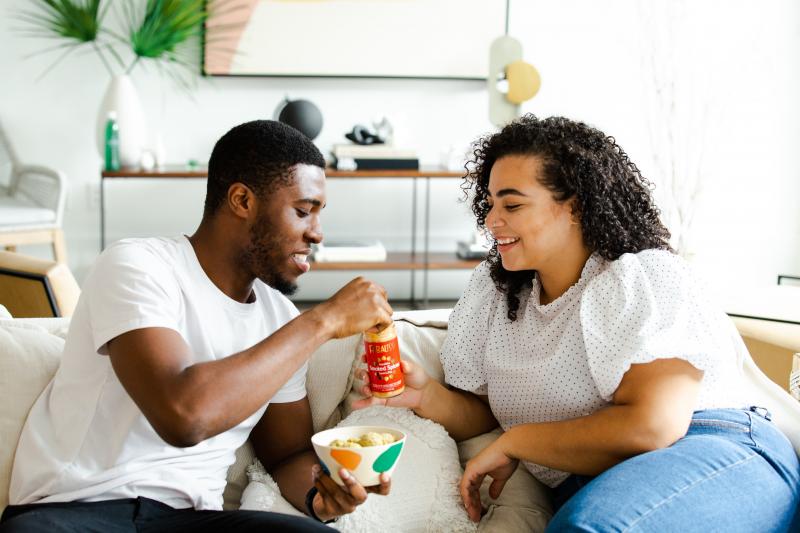
The COVID-19 pandemic can present challenges for those who have a lived experience of an eating disorder. Recent studies have found that the number of Australians seeking help around their body image and eating disorders has risen sharply during the COVID-19 pandemic.
The stereotype of a young, white woman might be who people expect to experience an eating disorder, but negative body images and disordered eating doesn't discriminate. Anyone can experience an eating disorder, at any stage in their life and no matter what they look like. For people who haven't experienced an eating disorder before, it may be difficult to understand what is happening - but feelings of low self-esteem, poor body image or body dissatisfaction, and a strong focus on food or dieting can all be warning signs of mean eating disorder.
There is no single reason why a person might develop or have an ongoing experience of an eating disorder, and while the pandemic has affected us all differently there are a few shared experiences which may be exacerbate negative feelings around body image or food.
The COVID-19 pandemic has seen many people lose their jobs, restricted our social lives, seen us at home and around food more, and disrupted our usual routines of exercise and eating. It has been a stressful and uncertain time, which can see people turn to food as a way of coping and feeling in control of their life.
Long periods of confinement at home because of social distancing has meant many people haven't had their usual support networks around them. Many people have turned to social media and video calls to stay connected - but that can also have the downside of further focusing on our appearance.
Being at home and around food can also amplify issues for those already experiencing disordered eating and even trigger issues in people who has not experienced it before.
Establishing a routine is a key part of recovery, and while COVID-19 has been disruptive to our daily patterns of exercise and eating, establishing small daily steps can help overwhelming feelings become a bit more manageable. Making a daily plan, with achievable tasks can give a sense of accomplishment, and distract from more negative feelings. Similarly, spending less time on social media, or unfollowing accounts which focus unrealistic lifestyles or body images can help minimise feelings of body dissatisfaction. Learning a new recipe or planning meals is also a great way to shift focus away from body image.
Another important thing to remember is that while COVID-19 has been very disruptive and changed the way support is delivered, there are still many people and services here to help you. Flourish Australia has COVID-safe support available in person and also offers support via the phone and online.
Click here for more COVID-19 news, as well as interesting stories of people who may have experienced something similar to your own story!
Talk to us today
For more information, contact us on 1300 779 270 or make an enquiry now.


